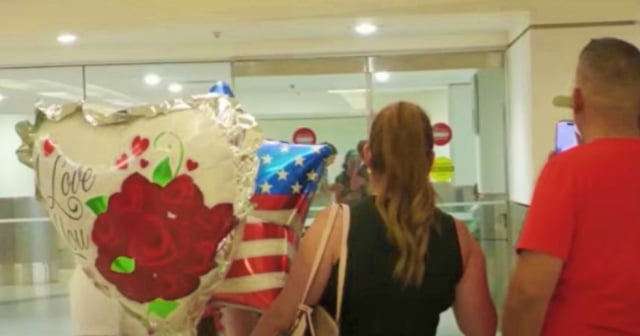After more than 48 hours of uncertainty and concern, on Monday a group of Cubans who had travel permits to arrive in the U.S. through humanitarian parole granted before the suspension announced on Friday were able to board their flights.
However, a testimony cited by journalist Mario J. Pentón revealed that there is inconsistency in the decisions, as initially American Airlines at Terminal 2 of José Martí Airport allowed the beneficiaries of the parole to board the plane without problems, but Delta from Terminal 3 did not.
Some of those affected report a certain "disconnection" between the previously expressed intention of the State Department to allow travel for those who had been granted permission prior to the suspension and what is actually happening in some cases.
However, Pentón emphasized that Cubans must ensure that their permits have not been revoked, as some authorizations that had already been granted have now been canceled as part of the review that State Department officials are conducting following a report that revealed massive fraud in application forms by some sponsors.
This Sunday, a spokesperson for the Department of Homeland Security (DHS) confirmed to Martí Noticias that it would allow beneficiaries of humanitarian parole who already had approved travel permits to travel to that country.
The authorities also added that they are working with stakeholders, including airlines and sponsors, to resolve the issues that have arisen as soon as possible, and that they will continue to provide updates.
The clarification emerged after beneficiaries of the program who had flights booked with American Airlines, Southwest, and other airlines were stranded on August 3 at Cuban airports when the airlines did not allow them to board the flights.
Temporary suspension of travel permits for beneficiaries of humanitarian parole
On August 2, the U.S. government temporarily froze travel permits for beneficiaries of the humanitarian parole program following an internal report revealing significant levels of fraud, Fox News reported, citing a spokesperson from the Department of Homeland Security (DHS).
The government source indicated that "as a precaution" they have suspended the issuance of advance travel authorizations for the program since mid-July, while they proceed to thoroughly review the applications from the sponsors, which is where the focus of fraud lies.
The CBP stopped issuing travel authorizations to Venezuelans on July 6 and to Cubans, Nicaraguans, and Haitians since July 18.
Some of the reasons why the United States government decided to temporarily halt the granting of permits were disclosed in an internal report from the Fraud Detection and National Security Directorate of the U.S. Citizenship and Immigration Services (USCIS).
In that review conducted by USCIS until April 17, 2024, they had 2,622,076 applications. Of that number, almost 529,000 applications were "confirmed" (or approved) and around 118,000 were "not confirmed" (or denied).
The internal document revealed that the application forms included social security numbers, addresses, and phone numbers that were used repeatedly, even in some cases hundreds of times.
The report revealed that 100,948 forms were completed by 3,218 serial sponsors, categorized as those whose number appears on 20 or more forms. It was also discovered that 24 of the 1,000 most used numbers belonged to a deceased person.
It is added that about a hundred postal addresses were used between 124 and 739 times in more than 19,000 forms. These addresses included storage units.
The researchers observed that there are at least 100 IP addresses that represented 51,133 of the I-134A form submissions, which means that the same IP address was used multiple times.
The phone number of a sponsor was sent in more than 2,000 forms, and there were 2,839 forms with zip codes of nonexistent sponsors.
Authorities indicated that they will resume processing as soon as possible "with the appropriate safeguards," although they did not provide a probable date for the return of travel permit concessions.
By the end of June, 106,757 Cubans had benefited from the program, and about 104,130 had already traveled to U.S. territory, according to official CBP figures.
What do you think?
COMMENTFiled under:
